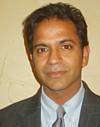|
“Scared to death” and “dying from sorrow”, have been repeatedly
demonstrated in romantic novels, country songs and with some variations in Tinsel town productions. Doctors are now learning what writers and movie producers have known for a long time. Sudden grief, shock, anger or fright can cause your heart to fail.
Based on a recent article in New England Journal of Medicine, doctors at John Hopkins reported a phenomenon, which probably has existed all along, but not well recognized. It has long been suspected that acute stress of any sort can cause heart attacks and death. Now, there does seem to be some evidence to support this theory.
Sudden emotional stress - from grief, fear, anger or shock - can cause heart failure, in a little known and poorly understood syndrome that seems to affect primarily women, researchers are reporting today. The victims are generally healthy, with no history of heart disease.
A death in the family, an armed robbery, a car accident, a biopsy procedure and a surprise party were among the events that sent 18 women and one man to coronary care units in Baltimore with chest pains and weakening of the heart, according to the article in The New England Journal of Medicine.
The cases reported were patients cared for by Doctors at John Hopkins from 1999 to 2003. "It's important for people to know that this is something that emotional stress truly can do," said Dr. Ilan S.
Wittstein, a cardiologist at Johns Hopkins University School of Medicine and the lead author of the article.
"How exactly it occurs is not clear, but the patients had unusually high levels of stress-related brain chemicals and hormones like adrenaline, which may have temporarily impaired their heart function. Why nearly all the victims were female is also unknown.
The researchers' scientific name for the condition is “stress
cardiomyopathy. It is not a heart attack, though it may be mistaken for one. The patients recovered fully and, unlike heart attack victims, did not suffer lasting damage to the heart muscle. Although, stress can precipitate heart attacks in patients with clogged arteries, the patients reported did not have blocked arteries. Patients with stress induced heart failure did not have patches of dead muscle. Instead, they had weakening of heart muscle that was temporary.
The good news is that the prognosis seems to be very good. Severity seems to range from mild to catastrophic. How common is it is unclear, as it may be an unrecognized issue. One patient who was described, suffered this syndrome during a surprise birthday party where 70 people jumped at her unexpectedly. Within three hours, she was in the intensive care unit.
The doctors at Johns Hopkins said they thought the syndrome occurred because the huge burst of adrenaline in these patients was toxic to the heart muscle and "stunned" it, leaving it temporarily unable to contract. The Hopkins researchers measured adrenaline and related stress hormones in 13 patients with the syndrome and found the levels to be 2 to 3 times those in people having severe heart attacks, and 7 to 34 times normal levels.
Scientists have known for decades that the body pours out adrenaline under stress in the "fight or flight" response, which speeds the heart rate and tenses the muscles to get a person ready to fight or run from a threat. But in some people, for unknown reasons, the rush of adrenaline may be more than the heart can take.
This clearly is an observational study. More detailed studies are needed. However, after reflecting on patients I have cared for, I can easily pick out several patients who would fall in this category. Not all cardiologists have bought into the idea, but I know most that I have spoken to are clearly intrigued by it. It is reportedly more common in women, but men maybe just as susceptible, except they have a higher incidence of blocked arteries which maybe a spurious and misleading coincidence.
This concept may carry an explanation for the rising incidence of heart attacks in the younger population. Stress has often been an overlooked risk factor in heart disease. Stress management has to be an integral part of heart healthy living. Living in semi chaotic circumstances with multi tasking expectations at home and work may need to be further tempered. This also explains why traditional forms of relaxation such as meditation and yoga have always shown tremendous benefit in lowering the risk of heart attack. “Time Out” is now an official prescription.
*Disclaimer:
The contents are meant for informative, educational purposes only. Formal recommendations can only be made by physicians involved in your care. Please check with your physician before acting on any part of this article.
|




